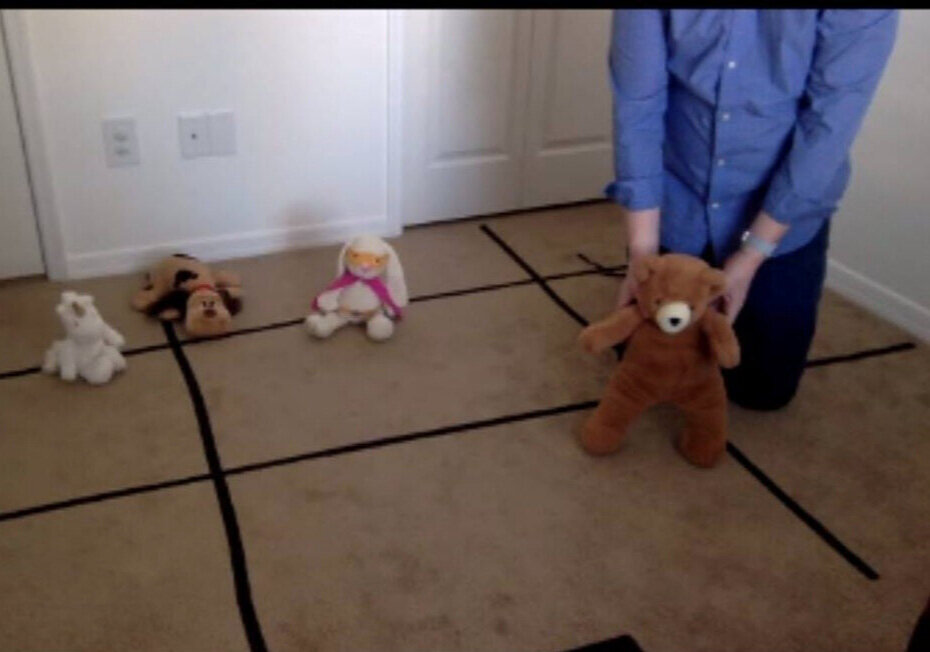Instructional Ideology
Don’t Apologize For Learning
In a classroom no one should expect perfection, especially on the first attempt. Students must be encouraged to fail spectacularly in a safe environment. Sometimes that takes permission, sometimes conversation, but always it demands that the instructor creates a safe environment and provides structured guidance for the students.
In the Classroom
I seek to create lessons that will actively engage the students. Discussions must be reliant on class participation, create physical examples with volunteers, and engage the student beyond merely lecturing. I also fully believe in grounding all material in familiar, accessible situations with valid links to the students’ lives, other fields of study, and the world at large.
Digital blocking lessons in times of Covid -19
Hudson Bear makes a strong downstage cross
Teaching Acting & Directing
When teaching acting, directing, and movement classes the focus of the course must be on the mentorship of future professionals. Training should:
Speak to the diversity of stories, playwrights, and other practitioners currently working in the theatre.
Incorporate a variety of play texts that speak directly to the student’s life experiences.
Consist of varied approaches. Theatre is not “one size fits all.” The training shouldn’t be either.
Celebrate both success and failures.
Exist as a practical lab. Training should always build towards a performance in order to more effectively simulate professional working conditions and to allow faculty to observe the work, provide guidance, and encourage growth.
In an acting classroom I seek to create an expansive and interconnected training track combining psychologically based acting training (Chekhov, Hagen, Stanislavski, Mamet), psychophysical theories, and movement-based training including The Feldenkrais Method, Biomechanics, Commedia, mime, Viewpoints, Intimacy for the stage, and stage combat. This diversity in training creates well-rounded actors capable of seamlessly navigating through a wide range of styles and plays.

